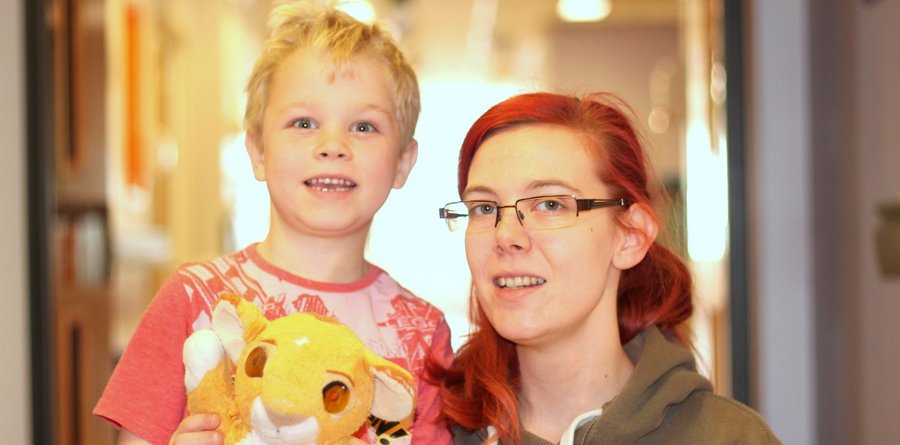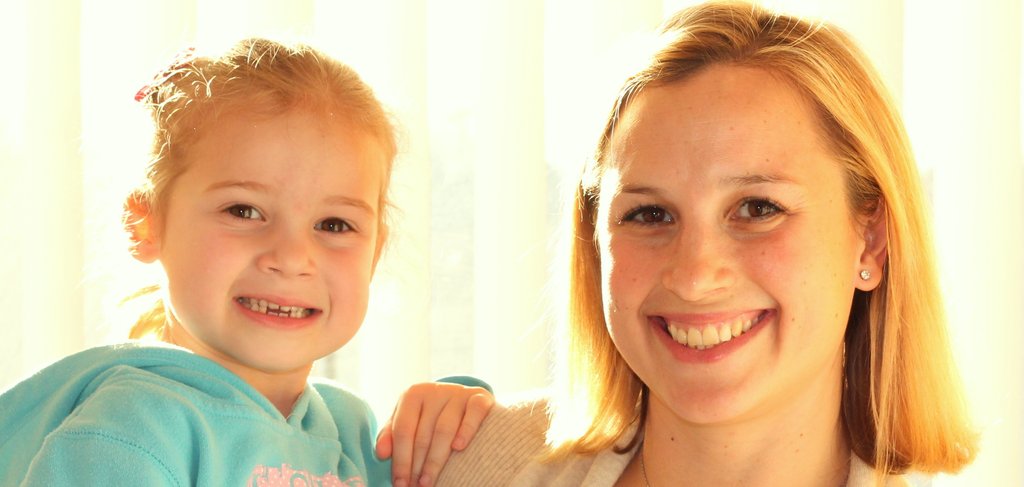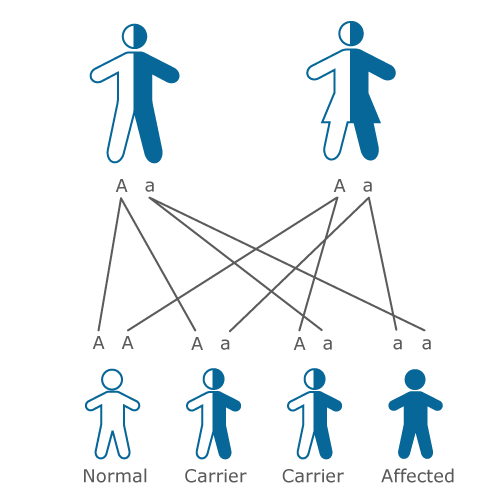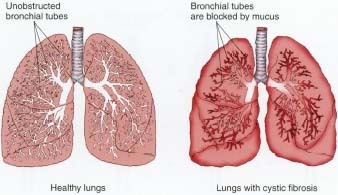

 |  | Search Home Find us Feedback |
 |  |
Information for children, teenagers and families | |
About CFCystic fibrosis is a genetic disease. This means it is caused by changes in the genes that are passed on from parents to their children. Each of the thousands of gene in the body has 2 copies. For CF to occur, both copies of the CF gene (CFTR) need to be damaged. Each parent of a child with CF will have one damaged copy of the CF gene and one normal copy; having one normal copy is enough to stay healthy. Each parent passes on one copy of each of their CF genes to their children. This means that there is a 1 in 4 chance of both damaged genes being passed on. 
CF mainly affects the lungs and the pancreas. The lungs start off working normally, but have differences in the mucous lining of the airways that means that the airways are prone to becoming infected. The infections irritate the airways and cause more mucous to be made resulting in a rattly cough. Toxins made by the infecting bacteria and by the body's immune cells trying to kill the bacteria can, very slowly, cause damage to the airways. The airways get bigger and baggier than normal (this is called bronchiectasis) and start to get clogged up with mucous, making it harder work to breathe. 
The pancreas is an organ in the abdomen (see picture). One of the main jobs the pancreas carries out is to help us digest our food by making special proteins called enzymes. The pancreas is the only part of the body that makes one particular enzyme called lipase, which is needed to digest fat. In CF the small tube that carries enzymes from the pancreas to the gut is blocked, stopping the lipase from getting through. About half the energy we get in our food comes as fat, so not being able to digest and absorb the energy from fat makes it difficult to grow normally and to maintain a healthy weight. 
|